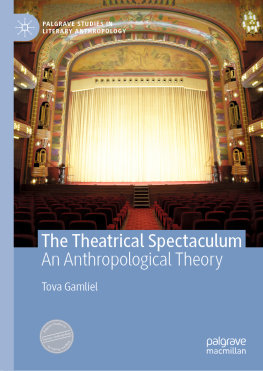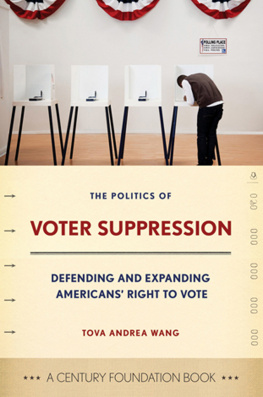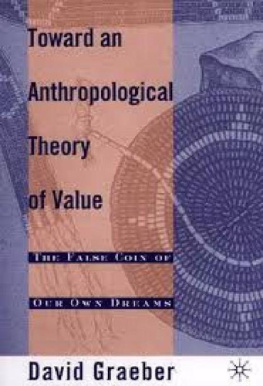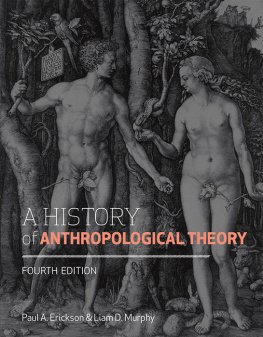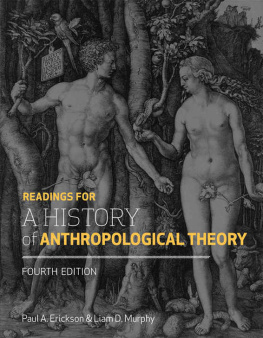Tova Gamliel - The Theatrical Spectaculum An Anthropological Theory
Here you can read online Tova Gamliel - The Theatrical Spectaculum An Anthropological Theory full text of the book (entire story) in english for free. Download pdf and epub, get meaning, cover and reviews about this ebook. year: 2020, publisher: Palgrave Macmillan, genre: Romance novel. Description of the work, (preface) as well as reviews are available. Best literature library LitArk.com created for fans of good reading and offers a wide selection of genres:
Romance novel
Science fiction
Adventure
Detective
Science
History
Home and family
Prose
Art
Politics
Computer
Non-fiction
Religion
Business
Children
Humor
Choose a favorite category and find really read worthwhile books. Enjoy immersion in the world of imagination, feel the emotions of the characters or learn something new for yourself, make an fascinating discovery.
- Book:The Theatrical Spectaculum An Anthropological Theory
- Author:
- Publisher:Palgrave Macmillan
- Genre:
- Year:2020
- Rating:4 / 5
- Favourites:Add to favourites
- Your mark:
- 80
- 1
- 2
- 3
- 4
- 5
The Theatrical Spectaculum An Anthropological Theory: summary, description and annotation
We offer to read an annotation, description, summary or preface (depends on what the author of the book "The Theatrical Spectaculum An Anthropological Theory" wrote himself). If you haven't found the necessary information about the book — write in the comments, we will try to find it.
The Theatrical Spectaculum An Anthropological Theory — read online for free the complete book (whole text) full work
Below is the text of the book, divided by pages. System saving the place of the last page read, allows you to conveniently read the book "The Theatrical Spectaculum An Anthropological Theory" online for free, without having to search again every time where you left off. Put a bookmark, and you can go to the page where you finished reading at any time.
Font size:
Interval:
Bookmark:
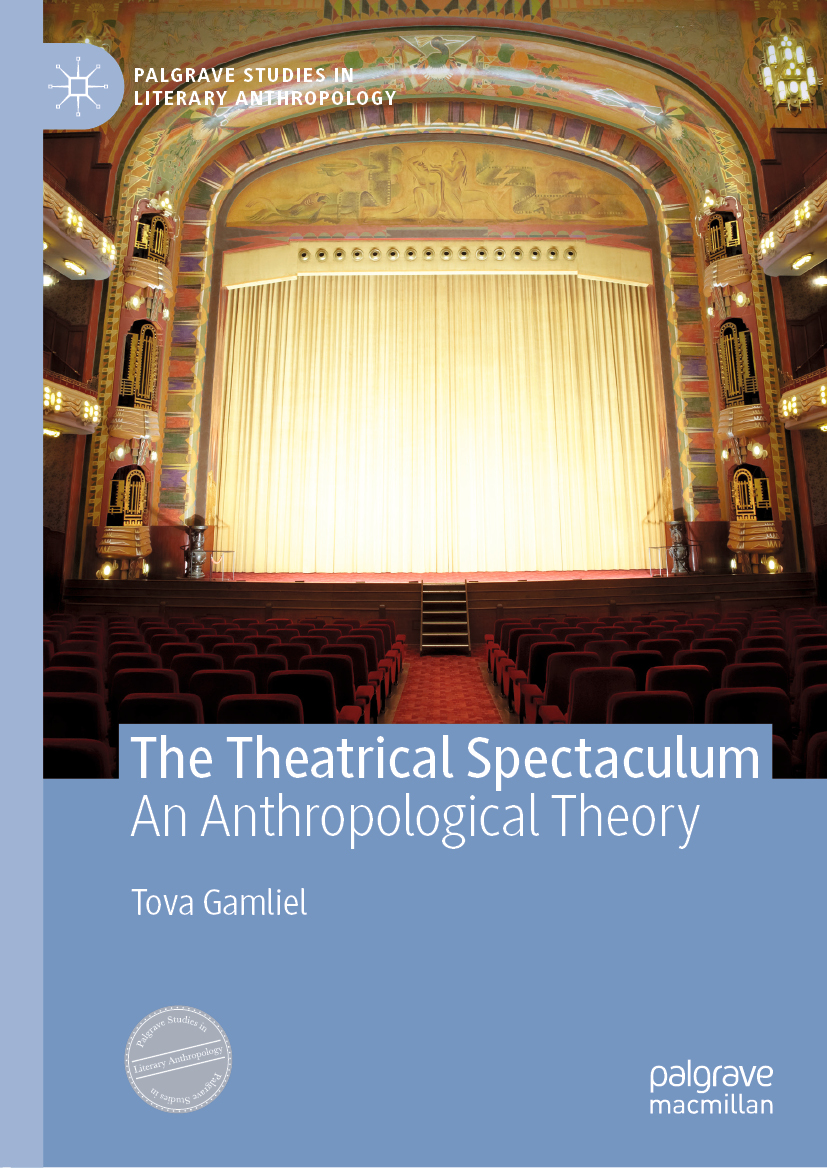
This book series aims to publish explorations of new ethnographic objects and emerging genres of writing at the intersection of literary and anthropological studies. Books in this series will be grounded in ethnographic perspectives and the broader cross-cultural lens that anthropology brings to the study of reading and writing. The series will explore the ethnography of fiction, ethnographic fiction, narrative ethnography, creative nonfiction, memoir, autoethnography, and the connections between travel literature and ethnographic writing.
More information about this series at http://www.palgrave.com/gp/series/15120

Cover illustration: AA World Travel Library/Alamy Stock Photo
This Palgrave Macmillan imprint is published by the registered company Springer Nature Switzerland AG
The registered company address is: Gewerbestrasse 11, 6330 Cham, Switzerland
In what follows, Tova Gamliel provides a stirring and profound meditation on the feeling of drama. It is written in a layered, complex, archeological prose that is Jamesian, moving upward and downward, back and forth, from abstraction and intellectualism to banal interviews with actors, observations of audiences, and dictates of directors. As with James, the effect of Gamliels intimate, subtle, implicative prose is to create a sense of the ultimate, of transcendence and its secular mystery, of a deep layer of sensation and metaphysical awareness underneath the prose. It as if reading itself provides an experience of the spectaculum, the experience that Gamliel posits as the ultimate ground base of theatre as compared to reading.
What follows is an anthropological essay. It is personal and metaphorical and often theological. Yet it is also filled to the brim, indeed generated by, years of intense fieldwork and minute empirical observation and interview.
Gamliel finds that actors view their actions as efforts to enact truthfulness. They strive to create an existential authenticity, the only sacred meaning possible in modern times, a sacrality stripped of metaphysics. As they seek to practice the art of bare honesty, actors purge themselves and their audiences of the performative pollution of modern life. Authenticity has happened is how an actor relates to Gamliel his performative success.
Not just actors but theatrical writers, directors, and technical staff aim to allow audiences to experience transcendence as if they were in the traditional world of the ancient Jews who received the Godly Revelation on Mount Sinai. The Ten Commandments, the ethical backdrop of western civilization, could never have passed to posterity if God had not scripted and Moses had not directed the sacral presence. BubersI-thou, a work that grows from but also goes beyond modern Jewish theology, translates the dramatic experience of transcendence at Mt. Sinai, performing the sacred that is modern acting.
It is not the theatrical text, theological or secular, but the experience of the darkened theatre and the blaze of arc light that illuminate emotions and meanings of actors on the stage and create the experience of theatrical sacredness. One can become alienated from a theatrical text, but not from the experience of theatre. This is why the ethical survives at the center of drama, no matter postmodern critique. Theatre is Barthes third, the oblique experience outside of the text that is phenomenological, inchoate, and primordial, a sensation of the other that warrants the suspension of disbelief.
Palgrave Studies in Literary Anthropologypublishes explorations of new ethnographic objects and emerging genres of writing at the intersection of literary and anthropological studies. Books in this series are grounded in ethnographic perspectives and the broader cross-cultural lens that anthropology brings to the study of reading and writing. By introducing work that applies an anthropological approach to literature, whether drawing on ethnography or other materials in relation to anthropological and literary theory, this series moves the conversation forward not only in literary anthropology, but also in general anthropology, literary studies, cultural studies, sociology, ethnographic writing, and creative writing. The literary turn in anthropology and critical research on world literatures share a comparable sensibility regarding global perspectives.
Fiction and autobiography have connections to ethnography that underscore the idea of the author as ethnographer and the ethnographer as author. Literary works are frequently included in anthropological research and writing, as well as in studies that do not focus specifically on literature. Anthropologists take an interest in fiction and memoir set in their field locations, and produced by native writers, in order to further their insights into the cultures and contexts they research. Experimental genres in anthropology have benefitted from the style and structure of fiction and autoethnography, as well as by other expressive forms ranging from film and performance art to technology, especially the Internet and social media. There are renowned fiction writers who trained as anthropologists, but moved on to a literary career. Their anthropologically inspired work is a common sounding board in literary anthropology. In the endeavor to foster writing skills in different genres, there are now courses on ethnographic writing, anthropological writing genres, experimental writing, and even creative writing taught by anthropologists. And increasingly, literary and reading communities are attracting anthropological attention, including an engagement with issues of how to reach a wider audience.
Font size:
Interval:
Bookmark:
Similar books «The Theatrical Spectaculum An Anthropological Theory»
Look at similar books to The Theatrical Spectaculum An Anthropological Theory. We have selected literature similar in name and meaning in the hope of providing readers with more options to find new, interesting, not yet read works.
Discussion, reviews of the book The Theatrical Spectaculum An Anthropological Theory and just readers' own opinions. Leave your comments, write what you think about the work, its meaning or the main characters. Specify what exactly you liked and what you didn't like, and why you think so.

